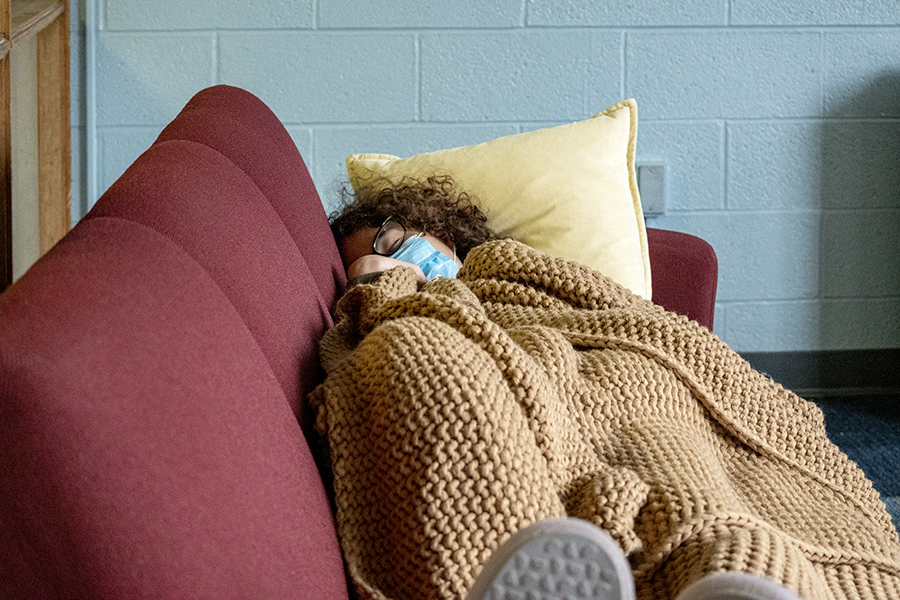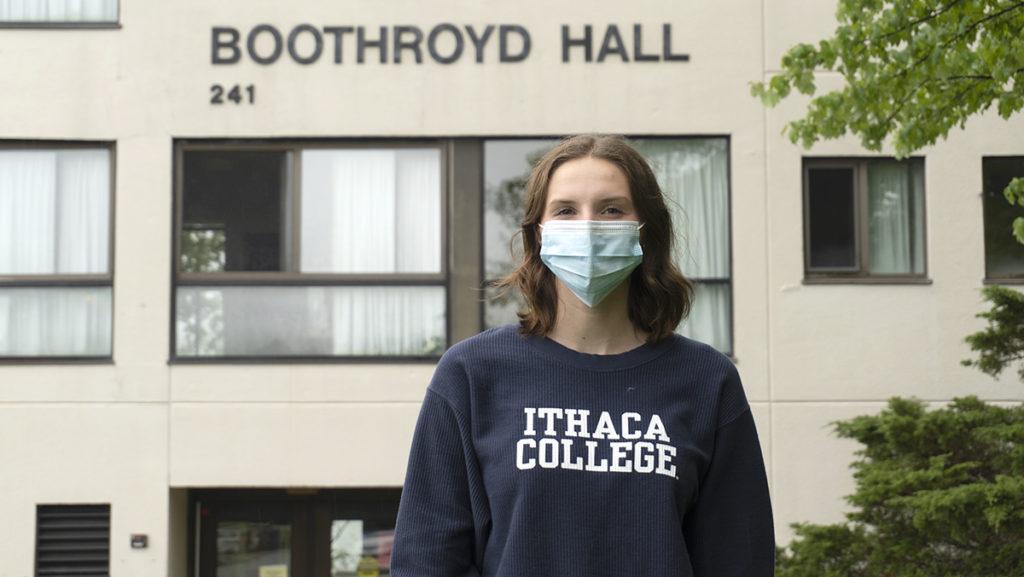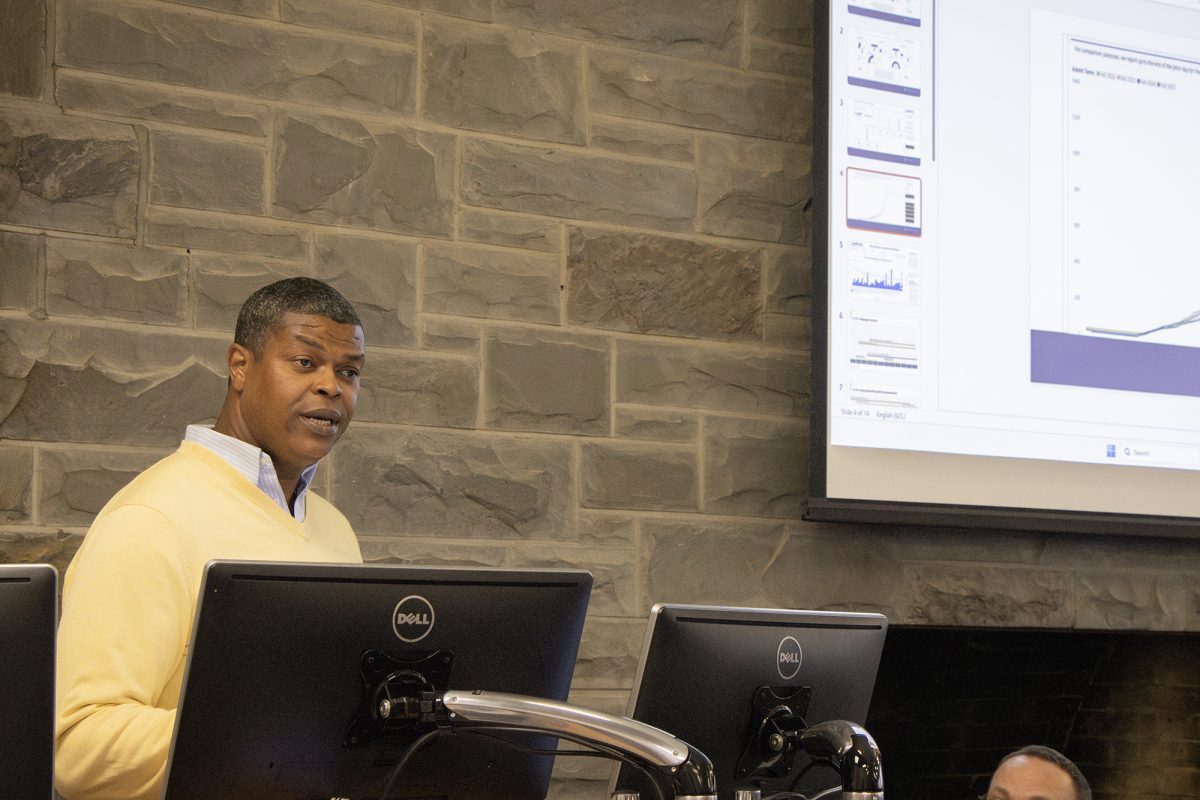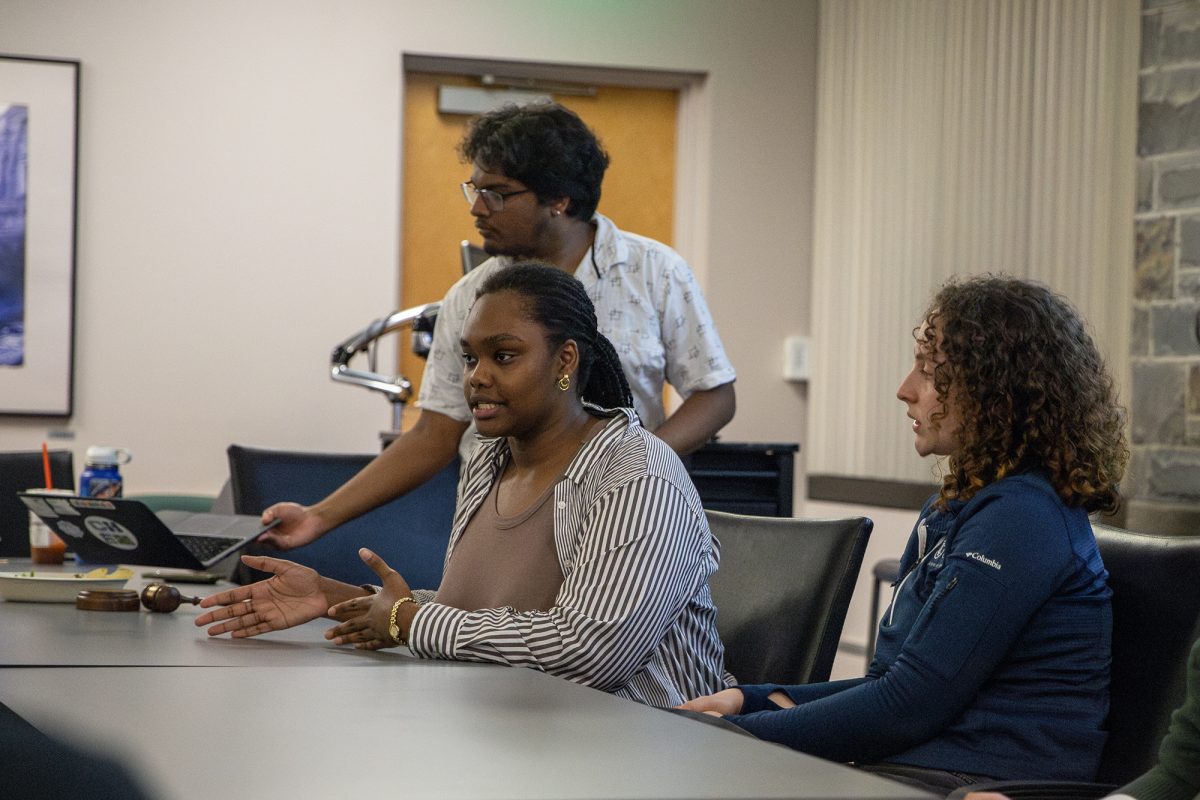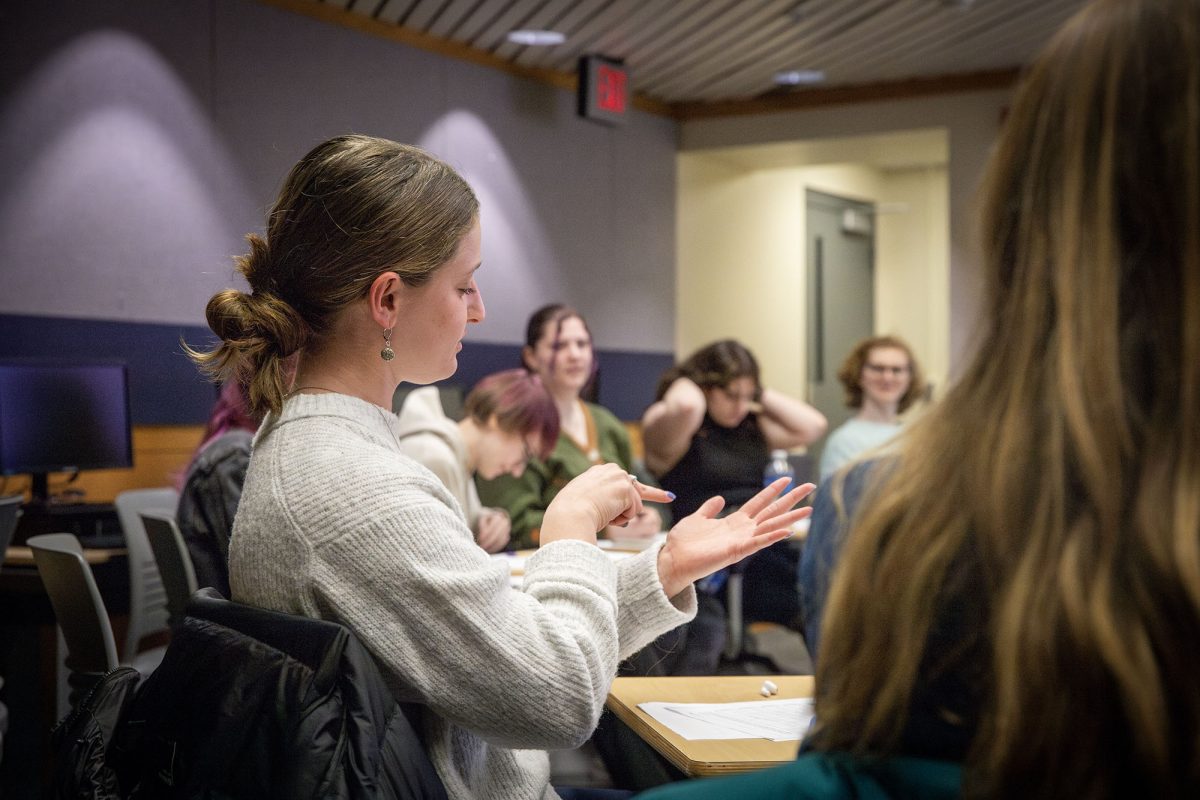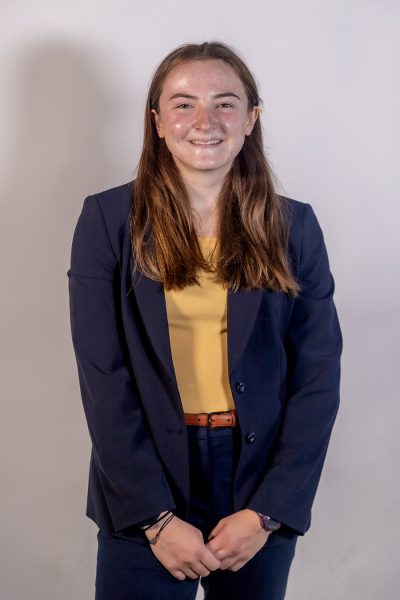Just weeks after they moved in, some Ithaca College students packed up their belongings again and temporarily relocated after their roommates tested positive for COVID-19. With no dedicated isolation space at the college, the students could either stay in the room with their sick roommate or find their own space to live in.
The college eliminated most of its COVID-19 infrastructure, including a dedicated isolation space in Boothroyd Hall for students who test positive for COVID-19, after the CDC ended the public health emergency in May 2023.
Samm Swarts, assistant director of Emergency Preparedness and Response, said the college currently advises students who contract COVID-19 to self-isolate in their living space for five days. Swarts said that if students do not want to stay in the same space as a roommate who has COVID-19, they can stay with a friend or contact the Office of Residential Life to try and find an alternate living arrangement.
“Folks should just really be following CDC guidance at this point,” Swarts said. “It’s really turned over to self management and folks trying to figure out what’s best for them, just like they would any other illness.”
Junior Alvin Yang is an RA in Landon Hall. Yang said that on Aug. 28, first-year student Andrew Marcus asked to sleep in the lounge on Yang’s floor because his roommate had COVID-19.
Marcus was not interviewed because he works for The Ithacan’s video and photo sections.
Yang said he contacted the resident director on duty to ask if the Office of Residential Life could find another room for Marcus.
“They told me that unless it was a serious health matter, or a serious safety issue, that no accommodations can be made, and that the only solution was for him to effectively find a friend’s room to stay in or go back to the room with [a sick] roommate,” Yang said.
Yang said Marcus was not comfortable returning to his room and was prepared to sleep on the lawn outside of the building. Yang said he got permission for Marcus to sleep in the lounge and asked other RAs to help provide blankets, pillows and other necessities for Marcus. Marcus slept in the lounge for five nights.
Yang said he feels that the Office of Residential Life should recognize that COVID-19 is still concerning for some students and develop specific protocols for COVID-19 accommodations.
“We have the resources to provide any concerned resident with a safe living space for as long as they deem necessary,” Yang said. “However, given the circumstances of how Ithaca College currently treats COVID-19 … we weren’t allowed to provide it. … There are policies that we have to follow, and the steps we have to take in order to provide residents with accommodations — if done incorrectly or without proper authority, [it] can result in us getting terminated.”
Senior Shannon Connor, an RA in Lyon Hall, said that on Sept. 4, one of her residents said her roommate had COVID-19 and asked for help with finding alternative housing. Connor said she felt like she was forced to prioritize policy over her residents’ well-being.
“I had to basically tell this resident, there is nothing I can possibly do for you,” Connor said. “That in general is heartbreaking … because I’m very much the type of RA who will bend over backwards to help my residents.”
Laura Davis, director for the Office of Residential Life and the Office of Student Conduct and Community Standards, said the office’s policies reflect the college’s COVID-19 policy. Davis said the Office of Residential Life does not plan to relocate students who have COVID-19 or who live with students who have COVID-19 unless they have an extenuating circumstance like immunocompromisation.
“We really are trying to honor and support that this has moved into a self-isolation and self-management,” Davis said. “We ourselves are understanding and challenging ourselves to kind of move in this new direction and away from some of the infrastructure that was in place.”
Ultimately, Davis said students can speak with their RA if they have concerns about their living arrangement because of COVID-19.
Swarts said the college has not made any plans to reopen Boothroyd Hall as an isolation space again but would consider using it if there was a spike in COVID-19 cases. Boothroyd Hall is currently empty because there is more housing on campus than students currently enrolled.
Though the CDC and Tompkins Whole Health still report hospitalizations and deaths from COVID-19, both groups — in addition to the college — have stopped tracking COVID-19 cases.
“We know that COVID is certainly circulating and will continue to circulate, but we have no real idea of what’s actually out there [or] positive cases that might be at any given time,” Swarts said.
Swarts said he communicates with Hammond Health Center, Tompkins Whole Health and Cornell University — which also encourages students to self-manage symptoms — to see if there are any changes in COVID-19 transmission. He said he sent a public health update to the campus community after he heard from students that were unsure about current protocols for COVID-19.
In the update, Swarts said the college will offer free over-the-counter testing kits for students at Hammond Health Center and staff at the Office of Human Resources until the tests run out or expire. The Office of Residential Life and Dining Services has also introduced a sick–meal protocol, which allows students to get a meal pass from their RA and give it to a friend to pick up meals for them.
Senior Julia Stitely said they have had two separate instances in which their roommates have developed COVID-19. In February, Stitely’s roommate in West Tower tested positive, and in early September, one of Stitely’s roommates in their Circle apartment tested positive. Stitely said they had to find their own space to stay in both instances.
Stitely said they are frustrated that the college and the Office of Residential Life have dissolved their COVID-19 infrastructure because COVID-19 is still distressing for some students. Stitely said they have symptoms of Long COVID and some of their friends, including one of their roommates, are immunocompromised.
“I feel like the entire country has just pretended that COVID doesn’t exist anymore, which is really ableist,” Stitely said. “We’re still in this pandemic, there’s still people dying. So it’s kind of like everyone’s like, ‘Ok, let’s move on … everything’s back to normal,’ which it’s not.”
Stitely said they believe that some of the college’s COVID-19 infrastructure should be brought back, including a testing location, an isolation space and regularly updated data on COVID-19 transmission.
Connor said she understands that the college is one of many institutions that are trying to move past COVID-19, but she believes the college must develop a more thoughtful housing policy for COVID-19 and increase transparency with the campus community.
“I think they should first … ask the students, ‘What can we do to better the situation for next time?’” Connor said. “‘What’s something that we could do so that people don’t feel like they’re homeless and have to sleep in the lounge?’ … I think it’s going to become a big problem. And I understand that they’re treating it like the flu, but the reality is COVID is not [the] common flu. The stigma and the pandemic that we went through, it will never be the common flu for our generation.”


